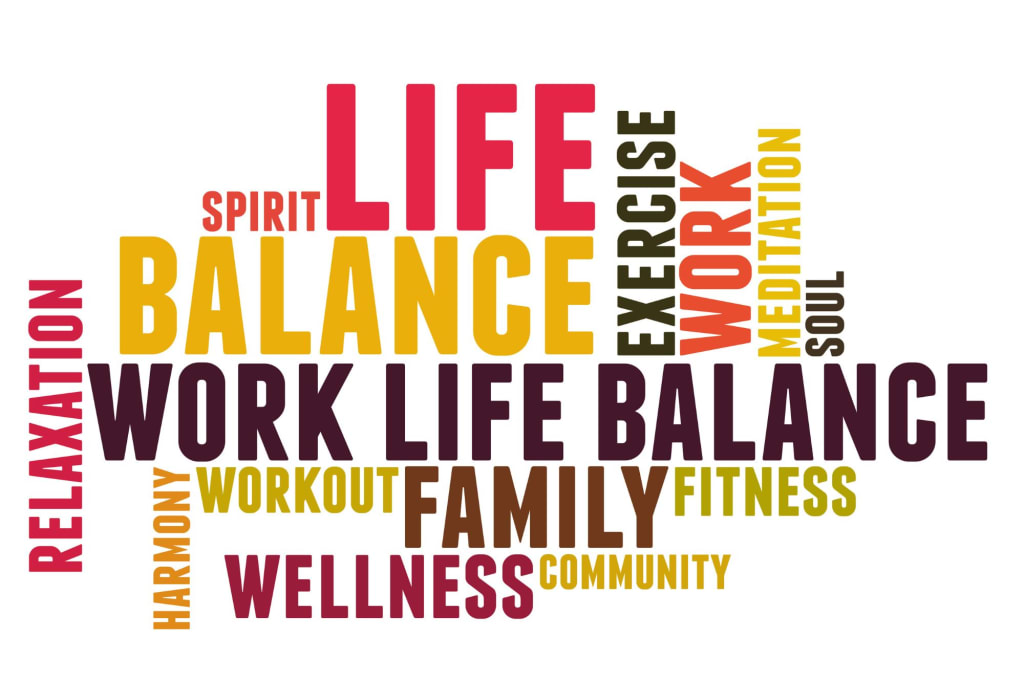Tips for Maintaining a Healthy Work-Life Balance
"Strategies for Prioritizing Health and Happiness."

Tips for Maintaining a Healthy Work-Life Balance
Maintaining a healthy work-life balance can be a challenge, particularly in today's fast-paced and demanding work environment. Balancing work responsibilities with personal commitments can be difficult, but it is crucial for overall well-being and success. In this article, we will explore several tips for maintaining a healthy work-life balance, helping you manage your time more effectively, and prioritizing your health and happiness.
Tip #1: Set Clear Boundaries
Setting clear boundaries is essential for maintaining a healthy work-life balance. This means establishing a clear separation between work time and personal time, and ensuring that your work does not interfere with your personal life. Establishing set work hours and taking breaks throughout the day can help you maintain focus and energy while also ensuring that you have time for personal commitments.
Tip #2: Prioritize Self-Care
Self-care is crucial for maintaining a healthy work-life balance. This means taking care of yourself physically, mentally, and emotionally. Engage in regular exercise, eat a balanced diet, and prioritize sleep. Additionally, taking breaks throughout the day and scheduling downtime can help reduce stress and improve overall well-being.
Tip #3: Learn to Say No
Learning to say no is an essential skill for maintaining a healthy work-life balance. It's easy to take on too much, particularly if you want to please others or advance in your career. However, overcommitting can lead to burnout and decreased productivity. Learn to prioritize your time and say no to requests that do not align with your goals or values.
Tip #4: Utilize Technology
Technology can be a valuable tool for maintaining a healthy work-life balance. Mobile apps and productivity tools can help you manage your time more effectively, reduce stress, and improve communication with colleagues. However, it's essential to set boundaries and ensure that technology doesn't become a source of additional stress or distraction.
Tip #5: Establish a Support System
Establishing a support system is crucial for maintaining a healthy work-life balance. This means building relationships with colleagues, friends, and family members who can provide support and help you manage your time more effectively. Additionally, seeking out a mentor or coach can provide guidance and support as you navigate your career.
Tip #6: Schedule Personal Time
One effective strategy for maintaining a healthy work-life balance is to schedule personal time just as you would work time. This could include time for hobbies, social activities, or simply relaxation. By prioritizing personal time and ensuring that it is built into your schedule, you can avoid the tendency to let work take over your life.
Tip #7: Set Realistic Expectations
Setting realistic expectations is crucial for managing stress and maintaining a healthy work-life balance. This means recognizing your limits and setting achievable goals. Avoid overcommitting yourself and be realistic about how much you can accomplish in a given day or week. By setting achievable goals and avoiding the pressure to do more, you can maintain balance and avoid burnout.
Tip #8: Take Advantage of Flexible Work Arrangements
If your workplace offers flexible work arrangements, such as remote work or flexible hours, take advantage of these options to create a better work-life balance. Remote work, in particular, can be an effective strategy for reducing commute time and allowing for more personal time. However, it's important to maintain boundaries and ensure that work doesn't interfere with personal time, even when working from home.
Tip #9: Practice Mindfulness
Mindfulness is a powerful tool for reducing stress and improving overall well-being. Practicing mindfulness can involve techniques such as meditation, deep breathing, or simply being present at the moment. By practicing mindfulness regularly, you can improve your ability to manage stress and maintain balance in your life.
Tip #10: Reevaluate Regularly
Finally, it's important to reevaluate your work-life balance regularly and make adjustments as needed. Your priorities and circumstances may change over time, and it's important to be flexible and willing to adjust your approach as needed. By regularly reevaluating your work-life balance and making adjustments as needed, you can ensure that you are maintaining balance and achieving success in both your personal and professional life.
Conclusion
Maintaining a healthy work-life balance is crucial for overall well-being and success. By setting clear boundaries, prioritizing self-care, learning to say no, utilizing technology, and establishing a support system, you can manage your time more effectively and reduce stress. Remember, achieving a healthy work-life balance is a journey, not a destination, and it requires ongoing effort and commitment. With the right approach, however, you can achieve balance and success in both your personal and professional life.






Comments
There are no comments for this story
Be the first to respond and start the conversation.